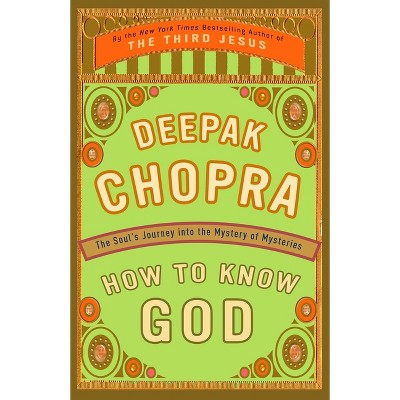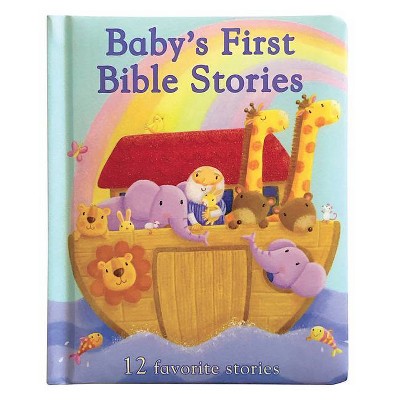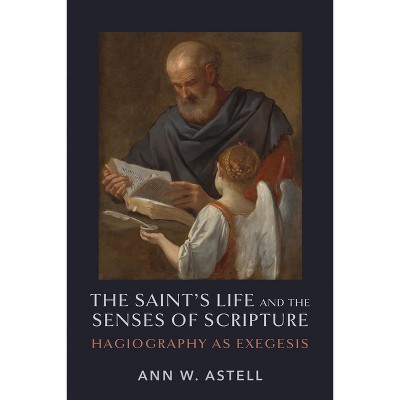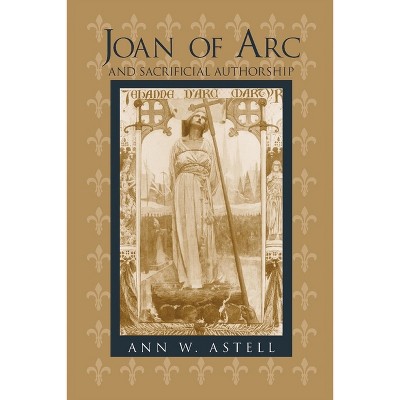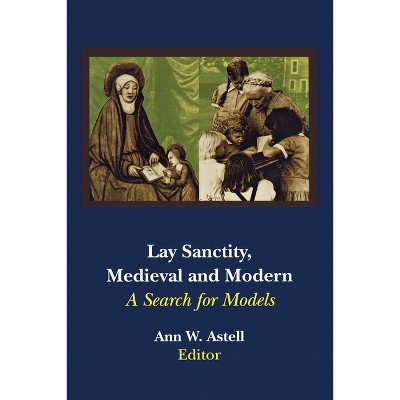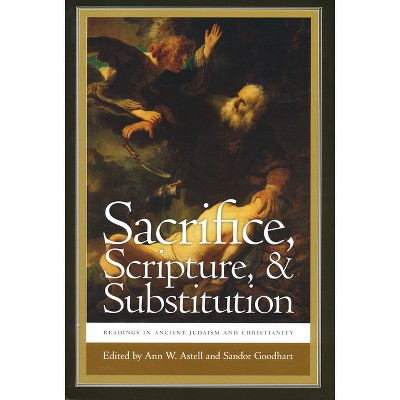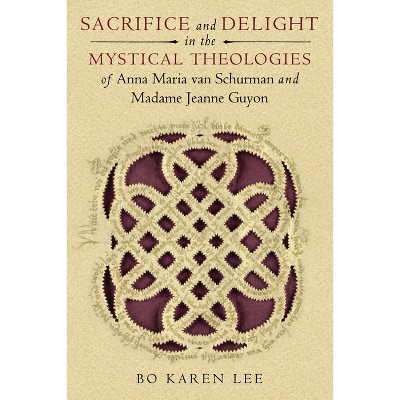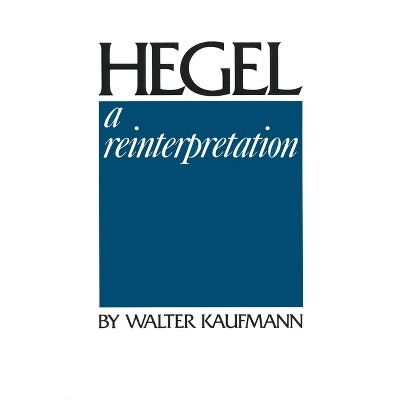Sponsored

Saving Fear in Christian Spirituality - by Ann W Astell (Hardcover)
In Stock
Sponsored
About this item
Highlights
- Hailed in Sacred Scripture as the "beginning of wisdom" (Ps 111:10), the "fear of the Lord" is seldom mentioned and little understood today.
- About the Author: Ann W. Astell is professor of theology at the University of Notre Dame.
- 432 Pages
- Religion + Beliefs, Christian Theology
Description
About the Book
The moral value of any given emotion is decided not by what each one is in itself, but by "the character of a person's will." And since that which directs a person's will is love, the true criterion for evaluating the emotions is the order or disorder of the love that they reflect. Indeed, each of the emotions can be redefined in terms of love: "a love which strains after the possession of the loved object is desire; and the love which possesses and enjoys that object is joy. The love that shuns what opposes it is fear, while the love that feels that opposition when it happens is grief. Consequently, these feelings are bad, if the love is bad, and good if the love is good." Augustine backs up his claim that each of the emotions can be rightly ordered by adducing scriptural texts that present each in a positive light. In the case of fear, he offers three Pauline texts that carve out three slightly different dimensions of fear in the Christian life: Philippians 2:12, which admonishes believers to work out their salvation with fear and trembling; Romans 11:20, where Gentile Christians are warned not to become proud but to fear lest they be cut off; and 2 Corinthians 11:3, where the Apostle professes his own fear in behalf of the believers at Corinth. Here, Augustine does not explicitly distinguish these kinds of fear by identifying the beloved object with whose possible loss the will "disagrees." His only concern at this point is to demonstrate that space must be made for a truly Christian "fear." A division of two fears does appear, however, a bit later, in City of God 14.9. Augustine begins by restating the point that Christians "feel fear and desire, pain and gladness in conformity with the holy Scriptures and sound doctrine; and because their love is right, all these feelings are right in them." Leaving aside fear of the loss of temporal goods such as health, wealth, or influence, Augustine now names four distinct objects of appropriate Christian fear, coupling each with a corresponding desire: fear of eternal punishment and desire for eternal life, fear of sin and desire for perseverance, fear of succumbing to temptation and desire for overcoming it, fear of others' perdition and desire for their liberation. Not only may such emotions rightly be found in Christians, they even find a model of them in Jesus himself: "Hence, when the Lord himself condescended to live a human life in the form of a servant [cf. Phil 2:7], though completely free from sin, he displayed these feelings in situations where he decided that they should be shown. For human emotion was not illusory in him who had a truly human body and a truly human mind." Augustine then finds scriptural evidence of Jesus's experience of each. Interestingly, he comes just short of actually ascribing "fear" to Jesus. He mentions gladness and desire once each, and sadness three times.It seems clear, however, that Augustine intends the final instance of sadness as an example of fear. Jesus's soul is sad in view of his impending passion, an event that has not yet happened. So, while the biblical text constrains him to use the word for sadness, Augustine's technical vocabulary of emotion would identify it rather as fear, the soul's disagreement with something that has not yet happened. Indeed, in his second treatment of Psalm 30, Augustine makes it clear that he sees fear as the operative emotion in Matthew 26:38. Nonetheless, it is noteworthy that, when it comes to Jesus, fear is listed, so to speak, with an asterisk. We shall return to this problem later. In the final paragraphs of the chapter, Augustine adds one more asterisk. In addition to "the fear which love feels, which, in truth, only love can feel," there is "the fear that is not prompted by love." This is the sort of fear that John says love casts out (1 Jn 4:18) and that Paul contrasts with life in the Spirit (Rom 8:15). In the following chapter, Augustine suggests that servile fear is, in fact, sinful: "For it must be a sin to desire what the Law of God forbids, and to abstain merely from fear of punishment and not for love of righteousness." At the same time, the analysis raises a new ambiguity, one to which Augustine himself is wise. If "fear" denotes one's "disagreement" with something that has not yet happened but may, it is hard to see how it can remain in the eschatological state, in which the loss of God through sin is no longer possible. The justified on pilgrimage are, by grace, in the condition of being able not to sin, but they also remain able to sin. Friendship with God is not secure and may be lost, and so its loss is to be feared. This corresponds precisely to Augustine's definition of the Psalmist's "chaste fear." Those who are glorified in heaven, on the other hand, are in a condition of being unable to sin, so it is difficult to see how they can be said to retain even this "chaste fear." And yet the wording of Psalm 18:10, which states that the fear of the Lord endures forever, compels Augustine to entertain the possibility of an eschatological "fear." He offers two tentative solutions to the conundrum. He first suggests that we simply have to strain the already established definition of fear: In a situation where the love of a good thing attained is changeless, there certainly the fear of an evil to be avoided is a serene fear--if that is a possible expression! The phrase "fear that is pure" [cf. Ps 18:10] signifies without doubt the act of will which makes it inevitable that we shall refuse to sin and that we shall be on our guard against sin, not with the anxiety of weakness, in fear of sinning, but with a tranquillity based on love. But is such a "serene fear" really fear?
(Excerpted from chapter 3).
Book Synopsis
Hailed in Sacred Scripture as the "beginning of wisdom" (Ps 111:10), the "fear of the Lord" is seldom mentioned and little understood today. A gift of the Spirit and a moral virtue or disposition, the "fear of the Lord" also frequently entails emotional experiences of differing kinds: compunction, dread, reverence, wonderment, and awe. Starting with the Bible itself, this collection of seventeen essays explores the place of holy fear in Christian spirituality from the early church to the present and argues that this fear is paradoxically linked in various ways to fear's seeming opposite, love. Indeed, the charged dynamic of love and fear accounts for different experiences and expressions of Christian life in response to changing historical circumstances and events.
The writings of the theologians, mystics, philosophers, saints, and artists studied here reveal the relationship between the fear and the love of God to be profoundly challenging and mysterious, its elements paradoxically conjoined in a creative tension with each other, but also tending to oscillate back-and-forth in the history of Christian spirituality as first one, then the other, comes to the fore, sometimes to correct a perceived imbalance, sometimes at the risk of losing its companion altogether. Given this historical pattern, clearly evident in these chronologically arranged essays, the palpable absence of a discourse of holy fear from the mainstream theological landscape should give us pause and invite us to consider if and how--under what aspect, in which contexts--a holy fear, inseparable from love, might be regained or discovered anew within Christian spirituality as a remedy both for a crippling anxiety and for a presumptive recklessness. This book will be of interest to students and scholars of Christian spirituality, theology, biblical studies, religious studies, and religion and literature.
Contributors: Ann W. Astell, Pieter G. R. de Villiers, Donna R. Hawk-Reinhard, John Sehorn, Catherine Rose Cavadini, Joseph Wawrykow, Robert Boenig, Ralph Keen, Wendy M. Wright, Ephraim Radner, Julia A. Lamm, Cyril O'Regan, Brenna Moore, Maj-Britt Frenze, and Todd Walatka
Review Quotes
"For those who pray to have a 'perpetual fear and love' of God's holy name, this volume is a salutary reminder that, in our relationship with the Lord, these two dispositions belong together." --The Living Church
"The 'fear of God' is a topic that has been largely neglected both in recent scholarship and in contemporary Christian pastoral practice--at least within the mainstream of Catholic and Protestant churches. And yet, as the essays in this volume show, the same theme has been of great significance in the historical development of Christian theology from the New Testament period onward." --Arthur Holder, Graduate Theological Union
"This volume is a necessary contribution to the conversation--indeed, this collection of essays shows that the fear of God has historically been more deeply intertwined with divine love than terror." --International Journal of Systematic Theology
About the Author
Ann W. Astell is professor of theology at the University of Notre Dame. She is the author, editor, and translator of fifteen books, including Sacrifice, Scripture, and Substitution: Readings in Ancient Judaism and Christianity, co-edited with Sandor Goodhart (University of Notre Dame Press, 2011).

